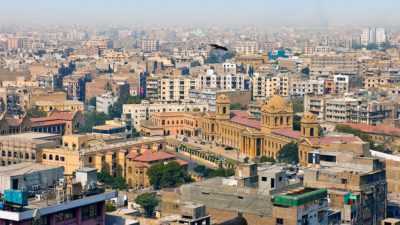Alarmingly, seventy-five percent of hospitalized patients with fever, body aches, discomfort, and rashes are diagnosed with dengue hemorrhagic fever.
According to the Sindh Health Department, 3,667 cases of dengue have been documented in the province thus far in 2018. There have been 3,273 in Karachi alone. In the first two weeks of September, at least 1,066 instances of the vector-borne sickness have been reported, including at least 115 cases on Tuesday.
East District had the highest number of cases with 1,319, followed by Central District with 780, Korangi District with 181, South District with 623, West District with 99, Malir District with 147, and Keamari district with 124. This year, the fever has claimed nine lives in Karachi, including six in the East District.
Platelet deficiency
Platelet count decreases in dengue fever because the virus that damages platelets affects the blood cells. Patients receive platelet transfusions to prevent hemorrhagic consequences. However, the exponential increase in dengue-positive cases across Sindh, notably in Karachi, has produced a critical scarcity of platelets, which has hospitals on edge.
Also Read:
- How to Increase Platelet Count Fast in Dengue?
- Book your Dengue NS1 Antigen Test Online
- Pakistan faces Panadol shortage as Dengue cases rise
- Pakistan Dengue Response; Emergency Plan of Action 2022
According to sources, the sort of dengue virus strain common in the city this year necessitates the usage of mega platelets because standard platelets are ineffective. The city is experiencing a crisis, but the government has not devised a plan to address it. Blood banks have requested donations in order to extract platelets to fulfill the rising need for these essential blood cells.
What triggered the outbreak of dengue?
According to health experts, the heavy and prolonged monsoon rains wreaked havoc on the city’s drainage and sewerage system, which collapsed, flooding streets, roads, and entire neighborhoods with sewage-contaminated slush and transforming them into mosquito breeding grounds. In particular, dengue and malaria are currently being transmitted by these mosquitoes across the city.
According to locals, municipal authorities have neither fumigated mosquito breeding grounds nor sprayed insecticides in the city’s most vulnerable neighborhoods to control the mosquito population. Now, Karachiites are taking all precautions possible to protect themselves from these disease vectors. To find doctors for Dengue, contact Marham as they’re providing online and physical appointments in this emergency.
The rising demand for mosquito nets and insect repellents has led to a market shortage. A mosquito net measuring six feet, which was formerly sold for Rs700, is now available for Rs1,400.
Panadol deficit?
The large increase in waterborne and mosquito-borne infections has also increased the need for over-the-counter pain medications and fever reducers, particularly Panadol. Previously, a 20-strip box of Panadol cost Rs340. Now, though, it has all but disappeared from medical stores in the capital, and those that still carry Panadol are selling the same box for Rs700.
Dengue versus Covid
Covid-19 becomes lethal when the body’s immune system gets hyperactive, whereas dengue becomes lethal when the number of platelets reduces dramatically, a medical professional revealed to Marham.pk.

